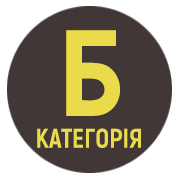LOCALISATION OF ENGLISH ADVERTISING SLOGANS IN CONTEMPORARY TRANSLATION DISCOURSE
DOI:
https://doi.org/10.32782/folium/2025.7.13Keywords:
advertising, slogan, translation, localisation, internationalisation, transformation, text pragmatics.Abstract
The article is devoted to analysing the translation of English-language advertising slogans into Ukrainian through the lens of modern translation theory and practice. Advertising is an important element of the communicative space, and the slogan is its key component, concentrating the meaning of the message and ensuring brand recognition. Special attention is given to the issue of localisation, understood as the complex process of adapting the text to the cultural and social norms of the target audience. The article makes clear that translating advertising slogans goes beyond purely linguistic activity and requires preserving pragmatic effect, emotional impact and cultural relevance. Based on practical material, the main strategies for reproducing English-language slogans are identified: calquing, partial and full transformation, and direct graphic transfer. The results show that calquing is the most common technique due to the global standardisation of advertising discourse, while in cases of wordplay or cultural allusion, various transformational solutions are applied. The study demonstrates that effective translation combines accuracy of content with creativity of form, while preserving the main function of the slogan – to influence the addressee and create associations with the brand. It is further emphasised that slogan translation has a dual value: on the one hand, it reveals the mechanisms underpinning advertising discourse; on the other, it serves as a practical tool determining the success of international campaigns. In this context, the translator appears not only as a linguistic intermediary but also as a creative agent, capable of shaping the text in line with the cultural and marketing needs of the audience.
References
Гохберг, О.Ю. (2011). Інтернаціоналізація рекламної індустрії України: теоретичні основи дослідження, тенденції та проблеми.
Культура народів Причорномор’я, 216, 35–39.
Єгорова, О.І., & Бикова, О.Д. (2014). Перекладацькі стратегії у світлі інтернаціоналізації реклами. Наукові записки. Філологічні науки,
Кн. 3, 88 с.
Кондратенко, Н.В. (2017). Мовні особливості англомовних рекламних слоганів та їх відтворення українською і російською
мовами: автореф. дис. … канд. філол. наук: 10.02.16 – перекладознавство. Одеса. 226 с.
Міщенко, А.Л. (2012). Локалізація та інтернаціоналізація перекладу у контексті міжкультурної комунікації. Наукові записки,
Серія: Філологічні науки (мовознавство): у 2 ч., 104 (1), 151–157.
Павловська, І.В. (2009). Мовно-структурні особливості побудови українських та американських слоганів. Наукові записки. Серія
«Культура і соціальні комунікації», 128–137.
Пророкова, Р.Д. (2019). Структурно-змістові та лексичні особливості побудови рекламних слоганів. Київ. С. 51–54.
Фірсова, Ю.А. (2011). Рекламний текст як проблема перекладу. Наукові записки. Серія: Філологічні науки (мовознавство), 56, 129–132.
URL: http://eprints.zu.edu.ua/2047/1/04fyuapp.pdf
Wernerfelt, B., Silk, A., & Shuyi Yu (2019). Internalization of advertising services: testing a theory of the firm. URL: https://dspace.mit.edu/
handle/1721.1/144255.












